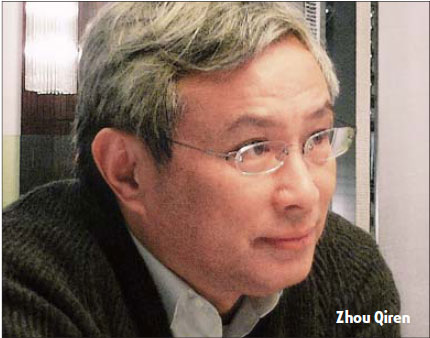
Govt role crucial for economy, says expert

Does the global crisis spell the death of the market economy, or is it time to discard the market forces and opt for a new economic model?
Is the root cause, as is alleged, some people's unquenchable desire for gold?
Or can the crisis be exorcized by just "spreading fistfuls of money", or nothing but government initiated stimulus programs?
These are often questions that economists ponder as they search for a solution to the crisis that is sweeping across the globe.
"People had better be careful in drawing their conclusions," said Zhou Qiren, a veteran economist and president of the National School of Development. "And don't forget that the role of the government can be crucial to the economy."
An economic crisis is, as often is the case, a management failure and a government failure, Zhou said in an interview with China Daily. "Where on earth does the market exist independently from the government influence?" he said.
Bureaucrats tend to blame other causes for the crisis without taking pains to restore an economy's long-term health. It is the policy-makers who always bear the brunt for the working or the failure of a financial system, said the economist who was one of the pioneering researchers in Chinese rural reforms during the early 1980s.
Just as placing no regulations on massive speculative growth is a political mistake, depending single-handedly on fiscal stimulus is bound to cause inflation, as is the rule of the market.
"The market will work, although market fundamentals will long be gone," Zhou said.
As all governments are rushing to print money for their stimulus plans, they should be aware of the possible negative long-term effect of their designs to ease short-term woes.
"Maybe," Zhou said, "this is also why Obama picked Paul Volcker, a specialist in inflation control, as his economic advisor." Volcker is chairman of Obama's economic recovery advisory board, but previously served as chairman of the Federal Reserve from 1979 to 1987. "Volcker is like his ammunition stock for the future."
For the developing countries which are less threatened by the problems now plaguing the United States, such as bad assets and failing banks, they should not sacrifice their long-term development goals for an easy, immediate recovery, Zhou said. "It does not make sense to just copy what the Americans are doing."
Whenever times are difficult, the most fundamental driving force for growth cannot come from the government's stimulus. It always lies in the ability of society to unlock its creativity.
The current financial crisis is also giving China a new opportunity for learning. While learning to keep its economy in balance, China should also learn to work with other countries in improving the global monetary and financial system. And this can only be done by a step-by-step approach, Zhou said.
He said the National School of Development faculty members have already returned from their overseas graduate studies and started applying those methodologies that they had learnt.
The primary goal is to apply the knowledge that they have acquired to the Chinese situation, he said.
But the China focus should not be taken as the scholars' inability to research on subject matters outside China, he said. "It does not mean that they can't take on any research project concerning the US economy."
China is important because it is a rare case of rapid economic change in the world. It is both an intellectual challenge and a service to other developing countries to have many aspects of its transformation documented and studied.
The NSD was founded in October 2008 on lines of the 15-year old China Center for Economic Research (CCER) of Peking University in Beijing.